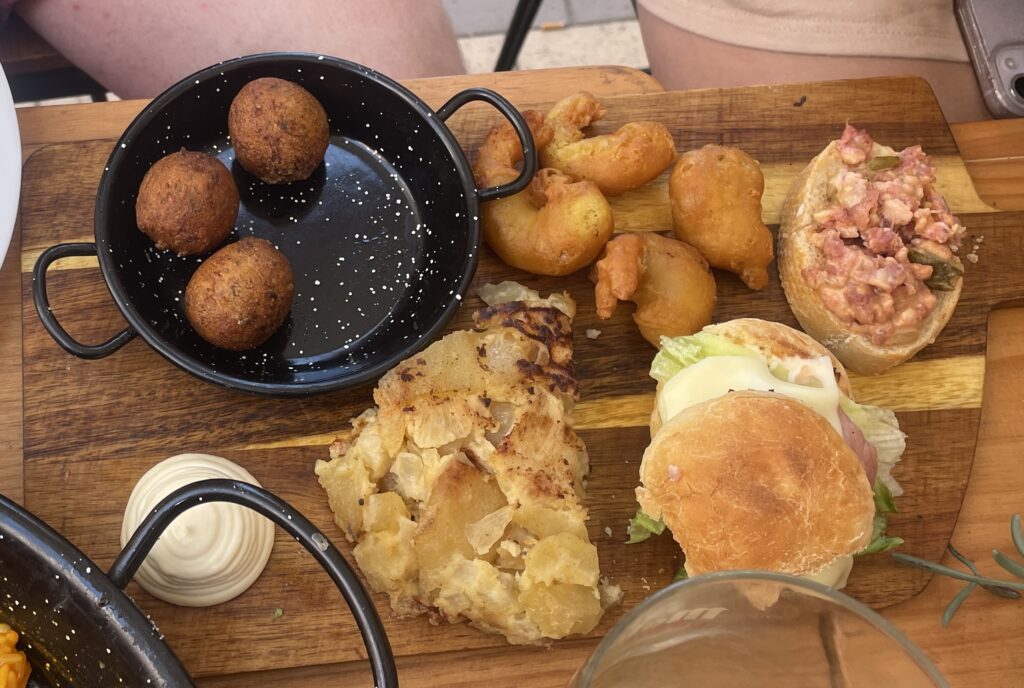
I tasted eggplant, which I had never eaten before, on my first night in Seville, Spain. I was apprehensive at first, but I was pleasantly surprised by how flavorful and tasty it was. The next day, I tried tapas—small appetizer-style foods intended for sharing—for the very first time. After sampling shrimp tempura, croquetas, and little sandwiches, I quickly realized that food would play a significant role in shaping not just my meals, but my entire study abroad experience and the memories I made with friends.
I took a Food & Culture in Spain course, where I studied the background of Spanish cooking and the importance of the Mediterranean diet. I learned about the importance of food in Spanish customs and cultural gatherings, as well as the variety, applications, and flavorful depth of olive oil. The class also taught me how Spanish cuisine, particularly tapas culture, has influenced dining traditions across the world.
The ability to relate classroom lessons to real-world situations added even more significance to my time abroad. In Seville, I could go out and sample many of the dishes we discussed in class, giving me a sense of connection between learning and living. My host mom prepared authentic home-cooked meals every single day while I was living in a homestay, which gave me a greater understanding of Spanish culinary customs and their ties to family life.
In addition to Spain, I had the opportunity to sample some of the tastiest head-on shrimp I’ve ever had in Portugal, along with the famous pastéis de nata pastries that lived up to all the hype. All in all, studying food overseas helped me appreciate culture more deeply than just cuisine, and it taught me that every meal can tell a story about the people who created it.
